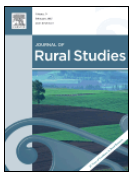Quality regimes in agro-food industries: A regulation theory reading of Fair Trade wine in Argentina
Juan Ignacio Staricco and Stefano Ponte have published an article in the Journal of Rural Studies
In this article, Staricco and Ponte examine the transformative potential of changing quality regimes in agro-food industries through the analysis of whether Fair Trade wine in Argentina provides a meaningful economic alternative that goes beyond the impact it has on direct beneficiaries. The wine sector has a long history in valorizing a variety of quality dimensions, and has developed one of the most complex and sophisticated quality infrastructures, making it an ideal terrain of analysis. Furthermore, it is going through a major process of restructuring in which the battle-lines are drawn along the application, challenge and re-interpretation of different quality content. Through the lenses of a sector-adjusted version of regulation theory, we show that the Fair Trade wine sector does not substantially deviate from the conventional wine economy in Argentina. Instead of empowering the most vulnerable groups, those producing table wine for the domestic market, Fair Trade is actually further marginalizing them.
Staricco, J. I. and Ponte, S. (2015) “Quality regimes in agro-food industries: A regulation theory reading of Fair Trade wine in Argentina Original Research Article”, Journal of Rural Studies, Vol. 38, pp. 65-76.
